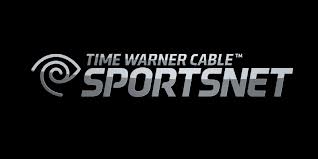
Alito
Justice Samuel Alito was forced to recuse himself from nearly six dozen cases brought to the Supreme Court in the last 10 months because the Alito family owns stock in many of the corporations involved in litigation.
When Alito’s wife Martha Ann’s father died last year, the Alito family inherited a wealth of stock worth up to $1.25 million in some of America’s largest companies, including AT&T and Verizon Communications.
The Associated Press reports Alito’s tardy financial disclosure for 2012 revealed the justice’s reasons for recusal: his sudden ownership of shares in large telecom, pharmaceutical, oil and gas, and tobacco companies.
Federal law requires justices to step away from cases where there is a financial conflict of interest. Alito’s inherited stock represents just such a conflict.
In one case, however, Alito found himself holding Comcast Corp. stock after hearing arguments in a massive class action antitrust case representing two million customers the plaintiffs argued were being overcharged by an illegitimate cable monopoly.
Alito’s Comcast stock was purchased and sold last December. The Court’s 5-4 decision, written by Justice Antonin Scalia, was announced March 27. Alito’s deciding vote fundamentally raised the bar on future lawsuits, making it much more difficult for class action cases to be brought before the courts.
The Comcast suit, in the courts since 2003, argued that cable subscribers in Pennsylvania, New Jersey and Delaware were overcharged at least $875 million because of Comcast’s efforts to monopolize cable service in the Philadelphia area. Comcast amassed its dominant position by buying or swapping cable systems in the region to create a single large cable provider serving the majority of southern New Jersey, Delaware, and southeastern Pennsylvania. By 2002, the lawsuit claimed, Comcast had achieved a 77.8 percent market share.

Comcast argued the lawsuit was too complicated and its proposed method of calculating damages was faulty. The Court’s conservative justices agreed with Comcast, finding the lawsuit fell “far short of establishing that damages are capable of measurement.”
- Voting for Comcast’s position: Chief Justice John Roberts and Justices Antonin Scalia, Anthony Kennedy, Clarence Thomas and Samuel Alito.
- Voting against Comcast: Justices Ruth Bader Ginsburg, Stephen Breyer, Sonia Sotomayor and Elena Kagan.
A study recently published in the Minnesota Law Review found the current Supreme Court is by far the most corporate-friendly of any court in at least 65 years, noting “the Roberts court is indeed highly pro-business — the conservatives extremely so and the liberals only moderately liberal.”
The top two most likely to vote in favor of big business among all justices seated since 1946 are Chief Justice Roberts and Justice Samuel A. Alito, Jr.
“There was a time when being ‘business-friendly’ meant giving corporations a leg-up and a level playing field because doing so creates jobs and bolsters the economy,” wrote Supreme Court reporter Jonathan Valania. “Today, ‘business-friendly’ means letting corporations socialize their costs while privatizing their profits. It means letting corporation literally write the laws that govern them. It means rolling back regulations and de-fanging oversight [….] What we are really talking about is corporatism.”


 Subscribe
Subscribe Time Warner Cable’s decision to spend $11 billion to broadcast Los Angeles Lakers and Dodgers games at an estimated cost of $50-60 a year per subscriber is the subject of a
Time Warner Cable’s decision to spend $11 billion to broadcast Los Angeles Lakers and Dodgers games at an estimated cost of $50-60 a year per subscriber is the subject of a  A California federal judge has rejected a class action case against Comcast for allegedly hiding modem fees as high as $15 a month when signing up new customers.
A California federal judge has rejected a class action case against Comcast for allegedly hiding modem fees as high as $15 a month when signing up new customers.

